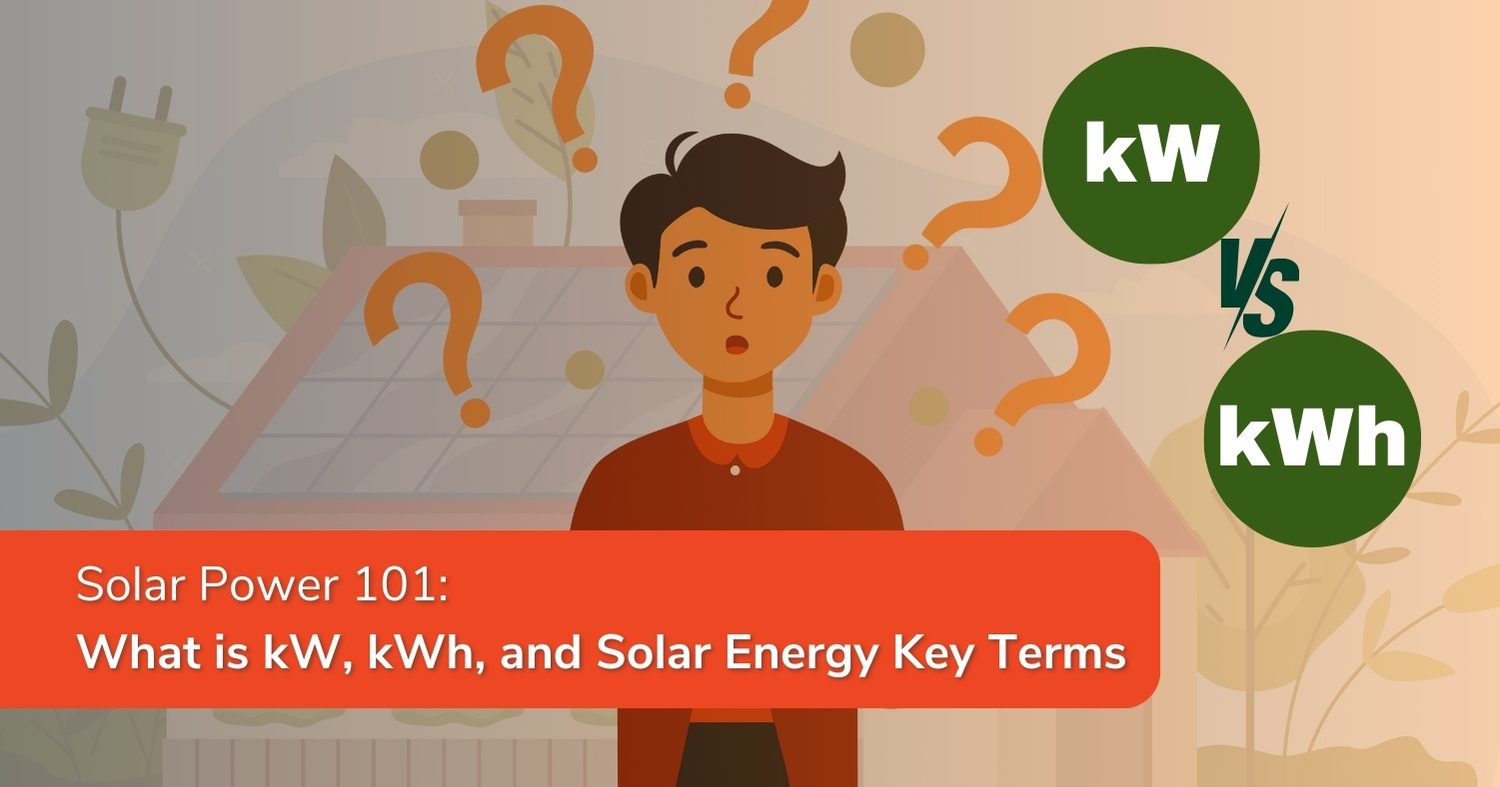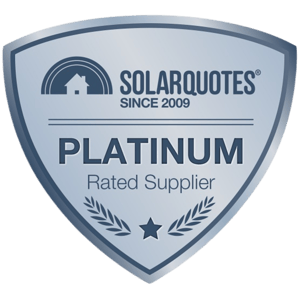Solar Power 101: What is kW, kWh, and Solar Energy Key Terms

As solar energy becomes increasingly popular for homes and businesses, understanding its terminology is crucial. One common area of confusion is differentiating between kilowatts (kW) and kilowatt-hours (kWh). But that’s not all—there are several other important terms to know. Let’s dive in to help you navigate solar energy with confidence and make informed decisions.
Kilowatts (kW): Power Rating
A kilowatt (kW) is a measurement unit of power that indicates the rate at which energy is generated or consumed at any given moment.
For example:
- A 5 kW solar panel system can produce 5 kilowatts of instant power under optimal conditions.
- A 2 kW appliance, like an air conditioner, uses 2 kilowatts of power while operating.
Think of kilowatts as the capacity or strength of a system or appliance—it tells you how much energy can flow at a specific time.
Kilowatt-Hours (kWh): Energy Usage
A kilowatt-hour (kWh) measures how much energy is used or produced over time. This is what you see on your electricity bill.
For example:
- Running a 2 kW air conditioner for 3 hours consumes 6 kWh (2 kW × 3 hours).
- A 5 kW solar system operating at full capacity for 4 hours generates 20 kWh (5 kW × 4 hours).
While kW measures instantaneous power, kWh accounts for energy over a specific period.

Choosing the Right Solar Panel System Size
Confusing kilowatts (kW) and kilowatt-hours (kWh) can lead to costly mistakes when selecting a solar panel system. Interchanging these terms might result in purchasing a system that’s either too large or too small for your needs.
To determine the appropriate solar system size, start by examining your daily energy usage (measured in kWh), which can be found on your electricity bill. Once you know your average daily consumption, you can calculate the required system capacity (kW) to generate enough energy to meet your needs.
By understanding the relationship between kW and kWh, you can ensure you choose the right solar panel system size for your energy requirements.
Choosing the Right Battery: Power vs. Capacity
When it comes to batteries, two specifications are critical:
- Energy Storage Capacity (kWh): This indicates how much energy the battery can store. A larger capacity means you can power your home for longer.
- Power Output (kW): This measures how quickly energy can flow in or out of the battery. Higher power allows you to run more appliances simultaneously or charge the battery faster.
For instance, a battery with 10 kWh capacity and 5 kW output can store enough energy for nighttime use but has a maximum power limit of 5kW for appliances running at the same time. This battery will fully discharge within 2 hours if used at full power.
To choose the right battery, balance storage capacity with power output to meet your household’s energy and peak power demands.
Other Key Solar Energy Terms
Here are additional terms to know that impact the performance and reliability of solar systems:
- Solar PV (Photovoltaic): Technology that converts sunlight into electricity, comprising solar panels, an inverter, and sometimes a battery.
- Inverter: A device that converts direct current (DC) from solar panels into alternating current (AC) for household use.
- Efficiency: The effectiveness of a solar panel in converting sunlight into electricity. High-efficiency panels are ideal for limited roof space.
- Peak Sun Hours: The amount of optimal sunlight available in a location, which determines how much energy a solar system can generate daily.
- MPPT (Maximum Power Point Tracking): A technology in inverters that optimises solar panel power output for maximum efficiency.
- Backup Power: Stored energy in a battery system used during grid outages to keep essential appliances running.
- Continuous Output Power: The maximum power a battery or inverter can deliver continuously without overheating.
- Net Metering: A billing system where excess solar energy sent to the grid is credited, reducing your net energy costs.
- Feed-in Tariff (FiT): The rate energy providers pay you for exporting surplus solar energy to the grid.
Why Understanding These Terms Matters
Having a clear understanding of solar energy terminology is essential for anyone considering solar power. Here’s why it matters:
- Choosing the Right Solar System Size: Knowing how power (kW) and energy (kWh) work ensures you pick a system that matches your energy needs without overspending.
- Evaluating Energy Savings: Understanding these terms helps you estimate potential savings and the efficiency of your system.
- Discussing Options with Providers: Familiarity with solar jargon allows you to ask informed questions and make confident decisions.
- Understanding Your Energy Bills: Learning these terms makes it easier to track energy usage, savings, and credits on your bill.
When considering solar energy, consult with trusted professionals to guide you through the process. A well-informed decision ensures your system is tailored to your energy needs, helping you achieve energy independence and long-term savings.
At Smart Energy Answers, Australia’s leading, award-winning provider of smart solar solutions, we’ve helped over 7,000 customers transition to renewable energy with systems designed for optimal performance and savings. With 700+ five-star reviews, you can trust us to deliver exceptional service and expertise every step of the way.
Take the first step toward a sustainable future today. Contact Smart Energy Answers for a free consultation and discover the perfect solar solution for your home or business!
Let us help you transform your energy future!
Get Your Free Energy Consultation and Start Your Journey Toward Energy Independence.
Phone: 1300 732 679 Email: info@smartenergyanswers.com.au
%20(1).png?width=265&height=96&name=www.smartenergyanswers.com.auhs-fshubfsSmart%20Energy%20Answers%20Logo%20(HIRES)%20(1).png)

.png?width=514&height=121&name=Tesla%20Powerwall%203%20(new).png)







